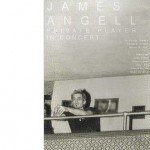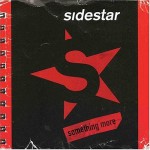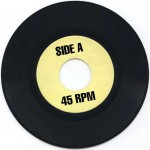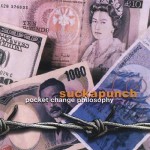James Angell and Private Player

Private Player In Concert DVD
Mandible Productions

About two and a half years ago, James Angell, former lead singer for the seminal Portland rock band Nero’s Rome, released his first solo album,Private Player; after several years away from the Portland music scene. That stunning album, painstakingly recorded in his kitchen (with the aid of former NR mates Tony Lash on drums and guitarist Tod Morrisey, as well as legendary bassist Phil Baker, drummer Steve “Thee Slayer Hippy“ Hanford, Todd Chatalas on acoustic guitar and Daniel Riddle of King Black acid on electric guitar), instantly brought to Angell a profusion of public and critical acclaim.
Late in 2002, while on a short solo tour, performing the music from Private Player, with only himself at the piano for accompaniment, Angell was introduced to John Taylor, bassist for renowned ‘80s Brit hitmakers Duran Duran, after a show at the Fez club in New York City. (Coincidentally, Courtney Taylor-Taylor, [who became the drummer for Nero’s Rome when Tony Lash left to form Heatmiser] and his band the Dandy Warhols, have a connection with another member of Duran Duran, keyboardist Nick Rhodes- who produced the Dandy’s Welcome To The Monkey House last year).
With the album given to him by a “mutual friend” (Courtney? Another fan David Bowie? Or perhaps Paul McCartney?) John Taylor admitted to being an huge admirer of James’ music and proposed that the two of them play together soon. Inspired at the prospect of realizing the albums’ more intricate production elements on a live stage, Angell quickly assembled a stage band, to be named after the album, which consisted of Lash and Riddle, another King Black Acid member, Sean Tichenor on guitar, and another former member of Nero’s Rome, Kevin Cozad, on keyboards.
Along with Taylor on bass, the band recorded what was only their second concert ever at the Aladdin Theatre on March 14th, 2003. For that show, the band captured all but one of the eight songs from the album, as well as a couple of new pieces. The resultant DVD (the first DVD ever reviewed in Two Louies) is a fine representation of that performance.
The video concert begins with “Hiding in Plain Sight,” a new song, with a rumbling solemnity that harkens to Radiohead as well as an updating of the Duran Duran/ Tears For Fears sort of sound the album conveys. It’s a live performance, so there are a lot of well-edited shots of the band members in action upon a well-lit, set. “Who’s Waking Me Up,” reprises its spacey melodicism, given a harder presentation in this format. Similarly, its disturbing companion piece, the crazy waltz “Ed Blue Bottle,” trucks along upon a truculently dominant bass piano figure- giving way to a film noir-ish middle section. Forceful.
Another new number “Ice Cream And Pez” rides on a moody piano chord progression in the verses, giving way to more open chords on the chorus. “Ooh Love,” written for his daughter, Astrid Zora, dances childlike in the happy movie haze, with an undercurrent of latter-day John Lennon floating in the interstellar aura of paternal warmth and celestial connection. Riddle’s gorgeously effected whalestar atmospherics on electric guitar add a cosmic depth and sheen to the mix.
The dark textures of “Treat Song” are augmented by Cozad’s tight vocal duet with Angell and more of Riddle’s shimmering pools of liquid guitar. James’ child-like lyrics reflect his daughter’s dreamy essence in their innocent precocity. The provocative lyrics of “Call Off The War” have even more meaning today than they did upon their public debut and are underscored by the dramatic reading given here- as the rockets of Riddle’s ethereal guitar glare red in the imperial twilight of the subtle bombast of the arrangement. Riddle’s stunning theme, introduced near the end of the piece, adds a separate, ghostly dimension to a powerful musical statement.
“Picture Perfect” is a mostly solo encore, pragmatically insightful and quietly philosophical, with a sort of Queen-like attention to operatic detail. Lash’s haunting industrial loop creates the conveyor for the gloomy grum introspection of “Dear Dying Friend,” whose lyric was penned by Steve Hanford. A cathartic chorus triumphantly rises above the knell. Cozad’s choirboy vocal near the middle adds an angelic transcendence, as the song passes up through several more levels of heaven and hell before resolving within the former.
This lovely set puts each musician in his best light, most especially James Angell, who seems perfectly at ease singing while playing piano on fairly complex compositions. Familiar pop structures fall by the wayside, as Angell explores a lush, Gershwin-ian approach to rock music, leaving conventional constructions behind to achieve a new and unique alchemy, which stands far apart from the norm. This is music of depth and substance, power and splendor; which merits being heard (and seen) by wider audience.
Tony Lash’s seamless editing of the video production (coordinated by TJ Civis), which nicely frames each member, while imparting a distinct sense of musical unity; with superb sound, engineered live by Jeff Saltzman (mixed by Lash), coalesce into a fine showcase for the band. James Angell seems poised to receive well-deserved recognition for his work, at a time in his life when he appears best able to handle the attention- matured and stable. His deeply personal and intellectually honest music is certainly worthy of the interest.
Suckapunch
Pocket Change Philosophy
Self-Produced
Far from the realm of the ordinary and as challenging as anything currently playing in the rap/hiphop arena, Suckapunch combine the exquisite electronic machinations of Keith Schreiner, whose sonic architectures cannot be confined merely to groups such as Dahlia and Auditory Sculpture alone. Here he lends film scores to the dense and intense poetry of Mic Crenshaw (Hungry Mob). Crenshaw, who was the 2001 Portland Poetry Slam champion and a National Poetry Slam finalist, adds erudite, politically-charged verses which speak to the issues concerning Americans today. Subtly confrontational raps weave their way into the unconscious mind, as Crenshaw spits out his rhymes with incredible speed and dexterity. What could easily be a cultural train wreck, instead brings out the best in both musicians, with several home runs and extra-base hits among the thirteen songs, a remix and the three poetry pieces presented here.
Crenshaw’s highly effected vocal is often hard to decipher on “This Is The Music,” with gates placed on his rapid-fire rhymes, abruptly truncating his words. Schreiner’s wraithlike backing instrumentation calls to mind that of Laurie Anderson on her song “Big Air” (“This is your captain speaking”); creating an unrelentingly sublime tension in the process.
Schreiner’s Tchaikovsky-like piano power chords accompany Crenshaw’s electronically lowered voice, while spastic hand claps keep the beat on the intro to “Graveyard Affirmations,” as a bigger, hipper beat takes over in the verses. Another unique, uncharacteristic mood is created for the battle scene: “Power surge/Howitzers flash/Fifty caliber rounds bursting glass/Pound and smash/Gas ignites, rebels strike out- clash and dash/The sounds of the fight resound through the night…”
A similar, low-key piano figure from Schreiner dances behind a big trip hop beat on “Awakening Poems,” as Mic aptly depicts a truly bleak (and bleakly true) landscape: “ Fornication and free basin’/damn near tore the nation apart/ Incarceration in broken homes/In the bustling’ metropolis/my folks is hostages/hustling’ narcotics…”
“Politically Correct,” plays off a flaky little plucked-piano motif, a big beat and percussive pedal point bass, and occasional noodly rubberized synth on the chorus passages, while Crenshaw lays down some serious smack- “Prophesy for profit/philosophy for pocket change/Lies explain the pain behind my eye sockets.”
“87 Billion Dollars” is a badass nocturne- played out on slick, noir, drama streets- one that digs deeply into the Iraqi war to find only blood and sand; gazing ruefully at the core of our nation to find only corruption and calamity. “Class war sparking up the economy/for as far as the eye can see/in an odyssey of poverty, hypocrisy and robbery/with the haves fuckin’ the have nots/and that’s all.” One of the home runs.
A symphonically cinematic sample, working against a syncopated 808 beat, drives the wired energy of “Backs Against The Wall,” a tale of drugs and waste. “Not Today” rhythmically plays 7s against 8s, while orbiting around a fat, skanky bass riff and some very odd clavinet loops, creating a sort of faintly reggae milieu. Strange, but hypnotic. A complex rhythm pattern and a couple of synths- buzzing and whirring conveyances- lay the foundation for “Genesis To Genocide,” a gospel from a new bible, the logos of a new age.
A loop of an oud, or some other middle-eastern lute, lends exotic flavor to “Moves,” while a rockier, bass drum propelled kit provides the beef; a tough orchestral hit on the keys the necessary spice, in the choruses. More lyrical gloss on this track wherein Mic espouses his propensity for the well-placed bon mot.
Schreiner creates a bit of a bass heavy mood on “Stop,” while bones dance macabre toward a memorable chorus, vaguely reminiscent of Soul Coughing. “Just Like Me” is a blues-tinged number on which Crenshaw displays a fine singing voice in the chorus, before laying down a soulful, introspective rap in the passionate verses. A profoundly syncopated drum track, in something like 14/8 time, adds to the drunken dyslexic wobble at the core of this compelling number.
Suckapunch fashion a new form of electronic hip-hop that combine a lot of brains with a lot of heart. Mic Crenshaw displays a true knack for language, with a literary vocabulary; as well as an intrinsically acerbic worldview: at turns anarchistic, reverent, irreverent, socially conscious, fatalistic, boastful, humble and hopeful. But always insightful and honest Keith Schreiner indelibly frosts Crenshaw’s observations with an array of sonic colors, contrasts and consistencies- at all times extending beyond the stylistic boundaries tacitly imposed by the dictates of contemporary popular music. This album at all times pushes the envelope, convening the strengths of two disparate musicians into an inimitable new variety, surely worthy of discovery by a discerning listener.
Sidestar

Something More
Sidestar Music
Sidestar are a young quartet who have been together for about a year and a half. The die was cast in June of 2002 at the Mt. Tabor Pub, when singer songwriter Ryan Andrews, then playing in a group called Blindlight, shared the bill with another band, The Spaces- which featured twin brothers Thad Rask (guitar and backing vocals), his bassist brother Ted, and drummer Aaron Brown. Andrews liked the sound of the backing trio and when the two separate bands fell apart, a new band emerged from the wreckage.
The band members are capable enough if a bit innocuous. Andrews’ lyrics contend, with the barest of emotional detail, with interpersonal relationships, often gone wrong. Andrews gives voice to adolescent sentiments in his songs, with recurring melodramas playing out like daily soap operas. Earnest. Superficial. This is not to say that Sidecar are not a good band- they show a lot of promise, especially lead guitarist Thad Rask. But clichéd, self-involved scenarios, delivered with a bevy of vocal ticks and affectations, frequently undermine well-conceived, if somewhat predictable, instrumental arrangements- in a colossal victory of style over substance. In essence, this is a good band with nothing in particular to say.
“Take Me Out” sets the scene. Andrews displays a reedy, slightly tortured vocal affinity with Live’s Ed Kowalczyk. A good hook for a chorus, helps to make the song memorable, if empty at its core. Thad Rask’s chiming guitar drives “East L.A.,” a song wherein Andrews lays down a bit of the baited breath, halting bravado that has made of Lord Sir Adam Fredric Duritz a household name; before demonstrating an excellent falsetto that sets him slightly apart from those whom he would mimic. He duplicates that feat on “21st Floor” and “Leaving You Behind.” He should use that falsetto more often (if judiciously) in trying to find a sound of his own. This is another well-wrought piece if not particularly involved lyrically: “She says boy you’re my star/I know exactly what you are/And then she, then she wraps her arms around me, yeah/She says she don’t understand/Why I am the way I am/And when she says she wants a little space/I just give her what she needs.” Skimming the surface of love of and attraction.
The intro to “Lose Ourselves” sounds like something from Spin Doctors, if they lost all sense of humor. Inexplicably, the ballad “My Everything” almost seems to quote Richard Marx’ piece of ‘80s dreck, “Right Here Waiting For You.” One shudders to think. “Sweet Letting Go,” again evokes Spin Doctors crossed with Better Than Ezra- as Andrews utilizes his falsetto in a memorable fashion. Incorporating a familiar vocal device (singing the first verse an octave lower than the succeeding verses) simulates intensity in “She’s Gone.” “ I’m a little angry/Just trying not to let it show/So I’m giving you the best of me/Just thought you’d like to know/After all the lights have gone away/You can hear the words I say/That I want something more/Just want things to be just like before/You know that I know.” A line drawing of real feelings.
With “Somebody New” and more overtly with “Back To Life” (where the reference is openly direct), Andrews wraps himself in his lyrics as completely as the inimitable Adam Durwitz. Sidecar have a lot in common with Counting Crows, whom they seem to be trying particularly hard to emulate (when they’re not emulating Live or Better Than Ezra): a solid backing band in support of a singer who is totally lost in the sound of his own voice. The three-part vocal harmonies on “Leaving You Behind” are very nice and also give hope to a future direction for the band.
Sidecar have all the tools to be a hit band. On the surface of their songs, they are a hit band. But, dig a little deeper and there is no deeper there. The songs presented are disingenuously pretty. Vacuous. Well-played. Derivative. Safe, unimaginative and shallow. They are one-dimensional. The amplified static hum of two fashion models studying their own reflections in each others’ eyes.
Songwriter Ryan Andrews needs to open a vein and contemplate the bleeding for a while. He would be wise to think more about the rest of the world and perhaps not so much about himself. Sidestar could be the next big thing for all I know- they could easily appeal to fellow adolescents- whom would seem to be the target demographic for songs such as this- and be off to the races. But they could be a vital band, capable of much more, if each member were to put just a little more effort into what they are doing, instead of taking the easy way every time. That extra effort could make of them a great band instead of one that is merely adequately competent.
Point, Line, Plane

7” Single
S-S Records
As their name aptly implies, Point, Line, Plane are a band that is about motion and dimension. They are a band of abstract perpendiculars. Their music is a theoretical shadow of their collective, three-dimensional, cubiform being. They have reached the planar, after first undergoing a period (so to speak) as two points in search of a new direction: ex-Sensualists vocalist/keyboardist Joshua Blanchard initially fell in with drummer Nathan Carson (ex- Witch Mountain), first performing at a Satyricon “New Band Night” show in January 2002. At the end of 2003 the duo added a second keyboardist, Howard Gillam, to the fold and thus was born the true PLP.
PLP would seem to draw their inspiration from a number of experimental/avant/noise sources, including Japanese bands such as The Boredoms, Ruins and Melt Banana, as well as seminal prog-rockers Van Der Graaf Generator, occasional references to Captain Beefheart and His Magic Band and the Screamers, the late-’70s LA punk band whose only album, In A Better World(recently re-released on Xeroid Records), still stands as a milestone paean to rage and frustration. At other times, PLP can sound like the raw edge of Nine Inch Nails or even like Greg Lake singing “21st Century Schizoid Man” with King Crimson on their groundbreaking 1969 release, In The Court Of the Crimson King.
PLP’s instrumentation are two keyboards and frenetic drums. No guitars to add linear clarity. No bass for structural stability. Merely the smudged buzz and the muffled vibrating hum of an electronic onslaught. Soft Cell this is not. The sound can be best described as that of a head-on collision between two eighteen-wheel semi-trucks transporting shipments of high explosives, while small arms ordnance burst, wildly flare, in the subsequent sonic fireball. Amen.
And that accounts for the just the first thirty seconds of “Curse Chorus Curse,” a sort of fucked-up “ABACAB” for the radical prodigal children of Phil Collins. Blanchard’s abrasive vocal mechanism shrieks viciously through the verses, before segueing into a more “melodic” chorus, where vague synth lines, ala NIN, add coloration to the onslaught. A spacey transitional section leads back to the top where the terror begins anew. A more subdued instrumental section leads the song out of darkness into the greylight gloom of doomed day.
“Sh-Boom” rather reverses the process- with Blanchard coming on melodic in the verses, before degenerating into anguished screams in the chorus- “You try, try, try to erase the place.” Well, there it is, after all. Meanwhile, Nathan Carson pounds out a jackhammer heartbeat in a dead cold adrenaline rush, while the synth maelstrom rises and subsides in a winedark whirlpool fugue.
Point Line Plane take their aggressions out on the unsuspecting world in a fairly passive way: by attempting to subdue the masses with great rumbling magnitudes of sound clouds. While this might not be the stuff of a first date, there is something exhilaratingly cathartic about their angst smitten tesseracts, their inculcations of primal torment. Ah, the gathering storm!

